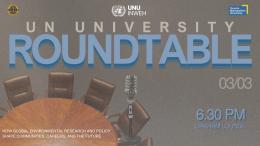Access the brief here.
The technologies for altering the reflective capacities of the Earth’s surface and atmosphere could relatively quickly reduce temperature increase and cool the planet. However, they could also generate a wide range of unintended consequences including uneven cooling, further climate variability, disruptions to the lower and middle stratosphere, acid rain, and could reduce incentives to mitigate global greenhouse gas emissions.
This Science Brief discusses Solar Radiation Modification (SRM), or solar geoengineering, which are technologies aimed at cooling the planet by reflecting sunlight back into space. These include stratospheric aerosol injection (SAI), marine cloud brightening, and surface albedo modification. While SRM could temporarily reduce global temperatures, it does not address the root causes of climate change and carries significant environmental, geopolitical, and ethical risks.
Modeling suggests that SAI could lower global temperatures at relatively low cost, but large-scale deployment remains untested and controversial. Risks include uneven regional impacts, disruptions to weather patterns, ozone depletion, and acid rain, while also potentially weakening incentives to reduce emissions.
There is currently no comprehensive international framework to govern SRM research or deployment. Some experts call for a moratorium, while others argue for more research to assess risks. The Scientific Advisory Board highlights three key considerations:
- Application of the precautionary principle;
- Establishment of a scientific forum for inclusive dialogue;
- Support of a global review process to assess SRM alongside climate mitigation strategies.
Additional Resources
One Atmosphere: An independent expert review on Solar Radiation Modification research and deployment - UN Environment Programme
Scenarios for modeling solar radiation modification - MacMartin et al., 2022
Solar radiation modification evidence review report - Scientific Advice Mechanism to the European Commission
Access the brief here.




